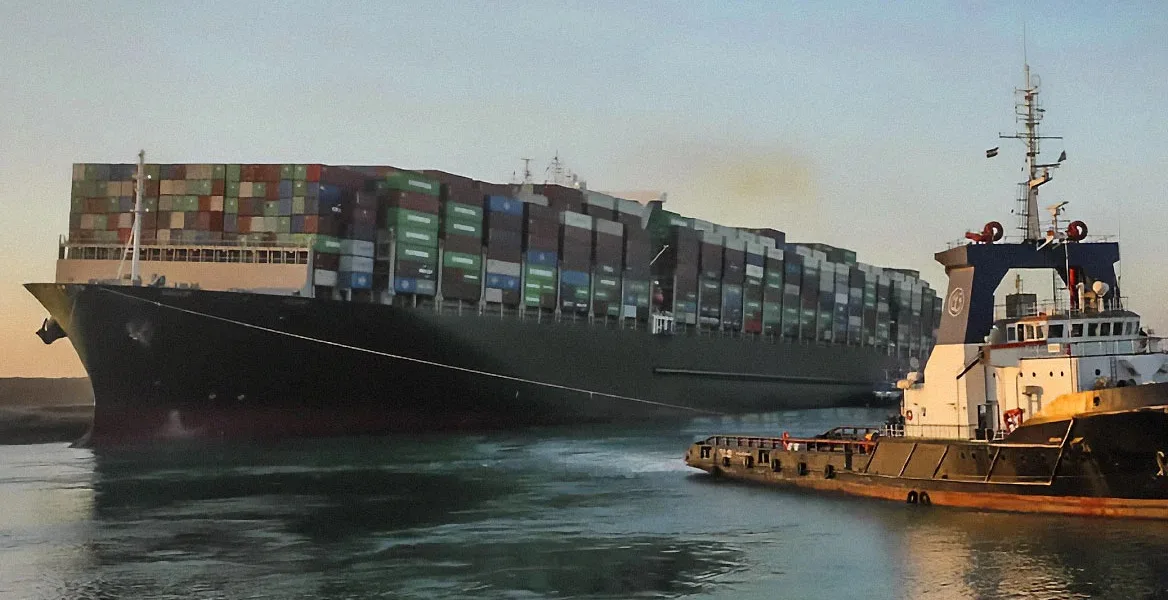The Minister of Shipping and Island Policy, Christos Stylianidis, announced that Greece is in favour of participating in an international military initiative to secure navigation in the Red Sea, where commercial ships are the target of escalating attacks by the Houthi rebels.
Speaking to reporters, he said: "Remember Operation Atalanta that was set up in the Somali region to tackle piracy and ensure the safety of shipping?" He added that he was a European commissioner at the time and participated in this initiative.
But as he underlined, Greece is ready to participate in an initiative as it is a leading country in shipping.
When asked to comment on the US side's decision to announce on Monday the formation of an initiative to secure the Red Sea with an alliance involving ten nations to counter attacks from the Iran-backed rebels on merchant ships, he revealed that the Ministry of Shipping and Archipelago is already in contact with EU and US officials.
He also emphasised that there are already warships patrolling the specific sea area, currently ensuring the passage of ships. He estimated that with such initiatives and determination, the maritime area situation would be controlled.
In the discussion, he added the parameter that the attacks are not only carried out with missiles but also with drones that appear to be of Iranian know-how and for this reason, international pressure is already being exerted on the Iranian government.
Speaking about the decision by the biggest liner shipping companies and the energy giant BP to reroute some ships around southern Africa and the Cape of Good Hope, avoiding the Suez Canal for security reasons, he said that this decision would significantly raise the operational cost of the ships since the time of the ship's journey increases.
Thus, the fares and insurance premiums will increase, as well as the price of the products, which will burden the consumer while at the same time short-circuiting the discussion and the data so far on how states will stem the rise of global inflation.
Wallenius Wilhelmsen, which operates a fleet of 125 carriers, has announced that it is currently diverting all vessels scheduled to transit the Red Sea via the Cape of Good Hope. Similar decisions have been made by the shipping giants MSC, AP Moller-Maersk, Hapag-Lloyd, and CMA CGM.
The US aircraft carrier Dwight Eisenhower had already moved from the Persian Gulf to the Gulf of Aden. Also, three destroyers were in the Mediterranean near Lebanon to strengthen the strike force of the aircraft carrier Gerald Ford.
Two days ago, the M/V Swan Atlantic of Norwegian interests and the Panama-flagged MSC Clara were attacked. According to international analysts, 15% of all products imported into Europe, the Middle East and North Africa are sent from Asia by sea. These include 21.5% of refined oil and 13% of crude oil.
Not allowing ships to pass through the Suez Canal will have unforeseeable consequences for prices and product availability.
It is estimated that daily rates for a Suezmax tanker from $49,000 a day today could soar to as much as $200,000 if the unrest in the Red Sea continues and ships route through South Africa.
Signal from the Coast Guard
In the meantime, the Coast Guard, and more specifically, the Marine Division of the Coast Guard last Saturday, December 16, sent an urgent signal to the shipping companies regarding the prevention and protection measures that must be taken by ships of Greek interests due to the intense escalation of aggressive actions against merchant ships in the maritime area of the southern Red Sea and the Gulf of Aden.
The competent directorate, in its signal communicated to the Ministries of Foreign Affairs and Defence, still advises ships to sail through the crossing of the southern Red Sea and the Bab el Madeb strait.
According to Proto Thema, the instructions state:
To avoid the maritime area of Yemen.
Participate in and follow updates, recommendations and emergency alerts from regional centres and units, such as the US Maritime Administration.
Conduct night sailings as much as possible in the southern Red Sea and Bad el Mandeb Strait.
The Coast Guard advises companies on the ship's bridge that only the watch remains and the rest of the crew stay as far as possible from the outside parts of the ship.
Fire drills should be conducted before the ship reaches the coast of Yemen.
The master may, at his discretion, deactivate the Automatic Identification System (AIS) as provided by the IMO for the cases of protecting ships from the risk of piracy.
READ MORE: Greece, Cyprus and Armenia sign tripartite military cooperation plan for 2024.

